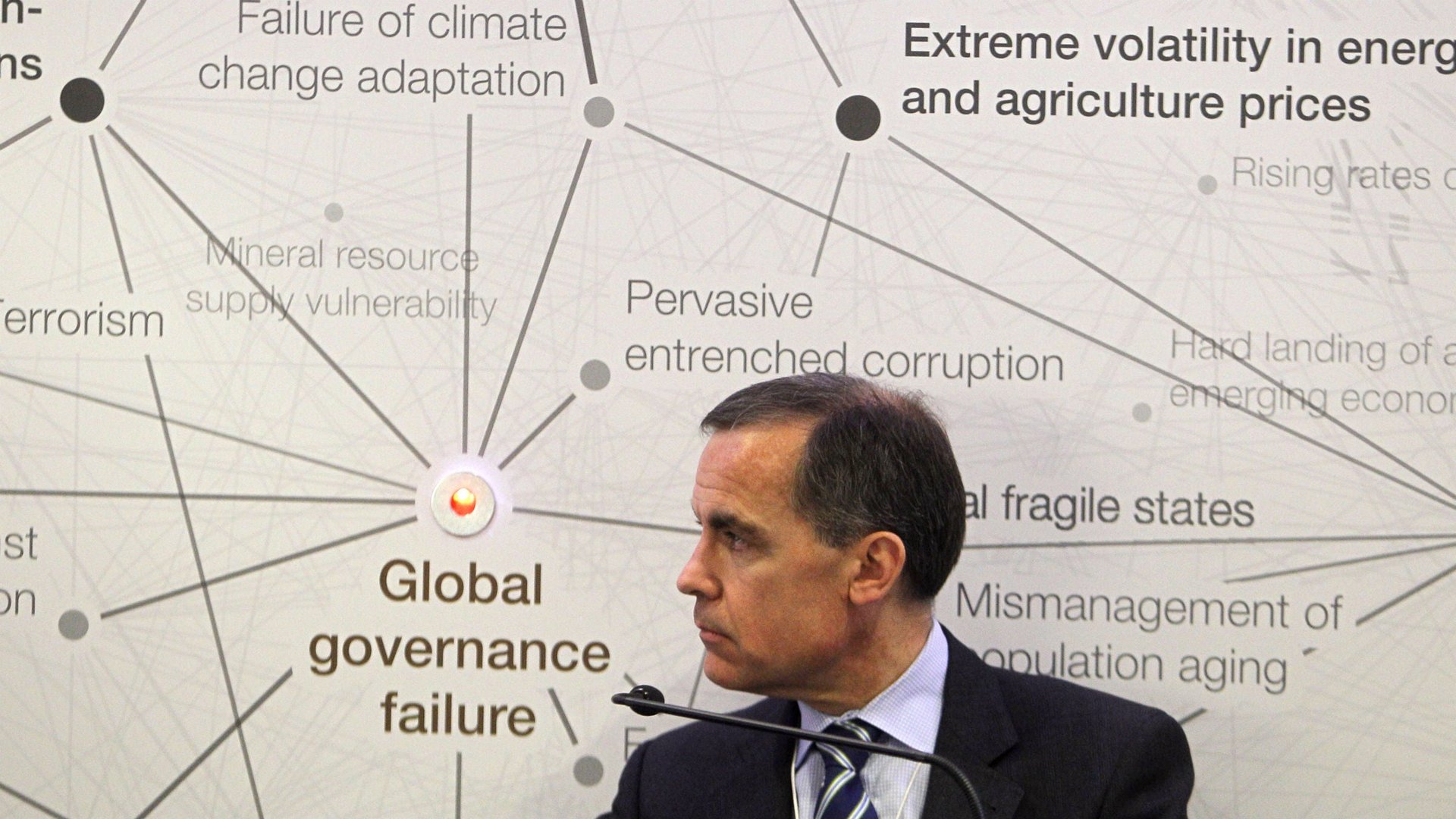Meet the Canadian who’s about to run the Bank of England
The Old Lady of Threadneedle Street will soon be led by a Canadian—and one who speaks French, at that. Mark Carney’s appointment to take over the Bank of England from Mervyn King once the current governor’s term expires in June 2013 came as a surprise, especially since he had ruled himself out in no uncertain terms back in August and again last month. But now that he seems to have changed his mind, here’s a dossier on him.


The Old Lady of Threadneedle Street will soon be led by a Canadian—and one who speaks French, at that. Mark Carney’s appointment to take over the Bank of England from Mervyn King once the current governor’s term expires in June 2013 came as a surprise, especially since he had ruled himself out in no uncertain terms back in August and again last month. But now that he seems to have changed his mind, here’s a dossier on him.
Current job: Governor of the Bank of Canada. Essentially the Ben Bernanke of America’s neighbor to the north. Mr. Carney took the reins in early 2008. He’s 47 years old.
Provenance: Born in Fort Smith, Northwest Territories in March 1965 and moved to Edmonton with his family as a child. Bachelor’s degree from Harvard in 1988. (He was on the hockey team. Backup goalie.) Doctorate in economics from Oxford University in 1995. He met his British-born wife at Oxford, where she played on the Oxford women’s hockey team. Mr. Carney worked for 13 years with Goldman Sachs, beginning in London before moving on to positions in New York and Tokyo. He ended up in Toronto, where he was a managing director in Goldman’s investment bank. He joined the Bank of Canada in 2003, leaving a year later to join the Department of Finance before returning to the bank as governor.
Monetary policy profile: Monetary policy in Canada has been easy under Mr. Carney. The central bank has kept interest rates low in order to help the resource-based Canadian economy manage the slowdown of China and other emerging markets, which are some of the biggest buyers of Canadian commodities, as well as the sluggishness of its all-important southern neighbor. But more recently the bank has sent signals that a rate hike could be coming early in 2013. That would be a departure from the path being followed by the Federal Reserve which sees rates staying at near zero until at least the middle of 2015.
Regulatory policy stance: Despite his pedigree as a former Goldman Sachs investment banker, Carney has been burnishing his credentials as a regulator recently, especially through his position as the head of the Switzerland-based Financial Stability Board, a body akin to the financial regulatory arm of the G-20. In this guise, Carney has been talking tough. In recent comments to the BBC he alluded to some messy recent financial scandals such as the Libor rigging controversy. ”These are big, complex banks, they deal with a range of countries and a range of types of transactions, and the senior executives have to be on top of all of that,” Carney said. “And if they can’t be on top of all of that, they need to shed businesses and activities.” Carney will stay on as chair of the board after he moves to London.
Criticism: Banks have griped about the Financial Stability Board’s focus on increased capital requirements, which they argue will slow down economic growth. On the other side, some have argued that the regulations have taken too long to put into place. For instance, the Fed recently delayed the implementation of requirements for beefing up the cushion of capital that banks must hold under the tougher Basel III rules, which are set to be phased in over the next few years.
Kudos: Wonky finance publication Euromoney recently named Carney the Central Bank Governor of the Year for 2012, citing “his stewardship of Canadian monetary policy and his role in promoting new global banking regulation.” He was also recently named “Canadian of the Year” by the Canadian Club of Toronto, and has been spoken of as a possible prime minister.